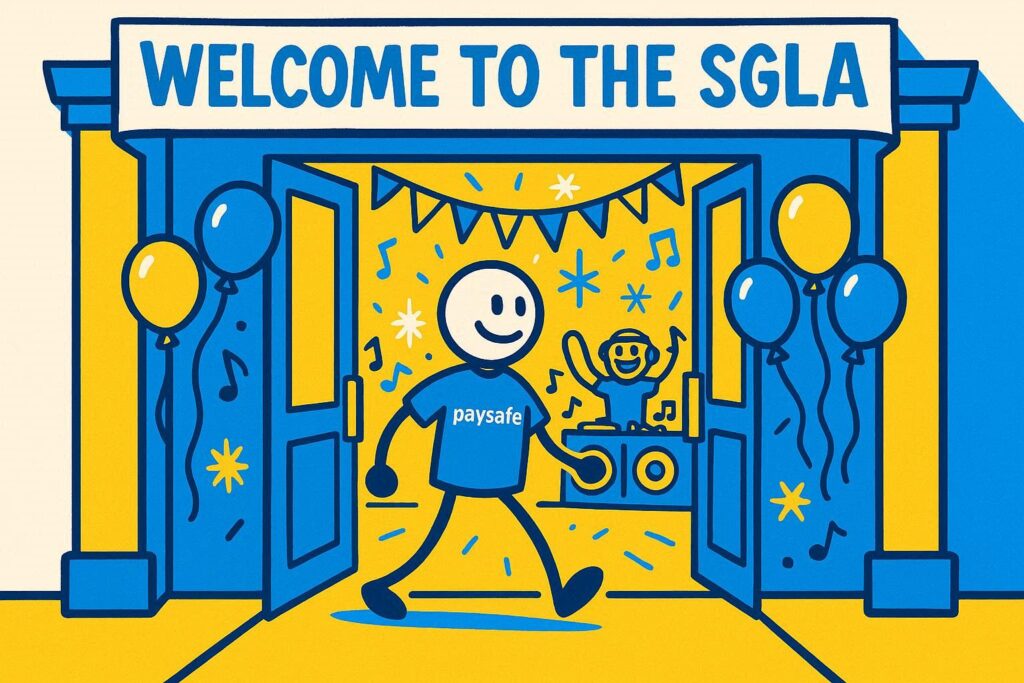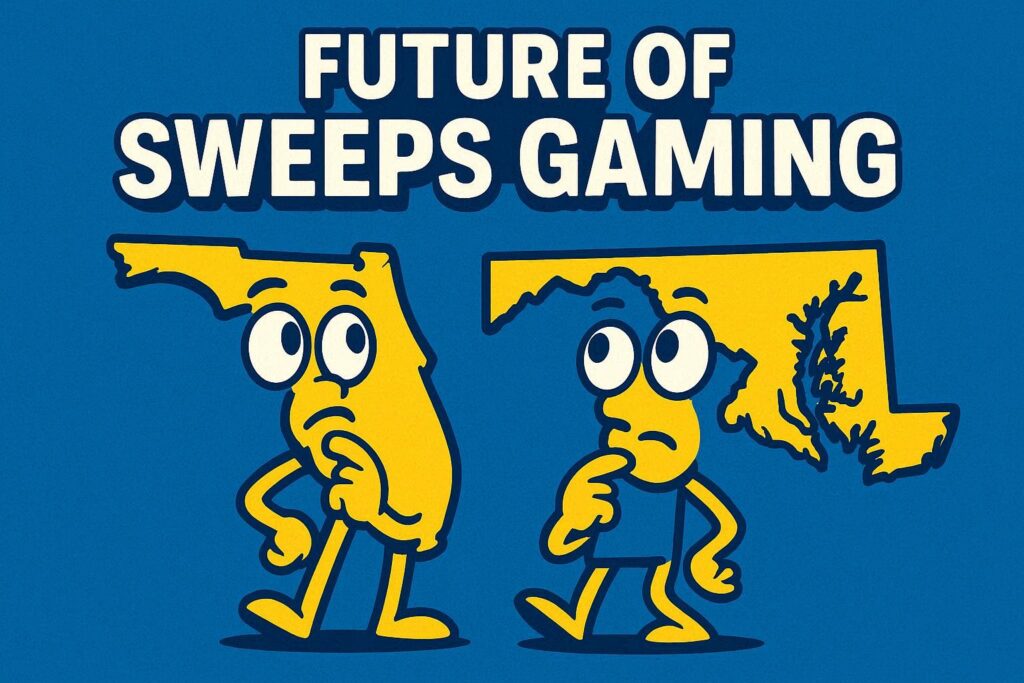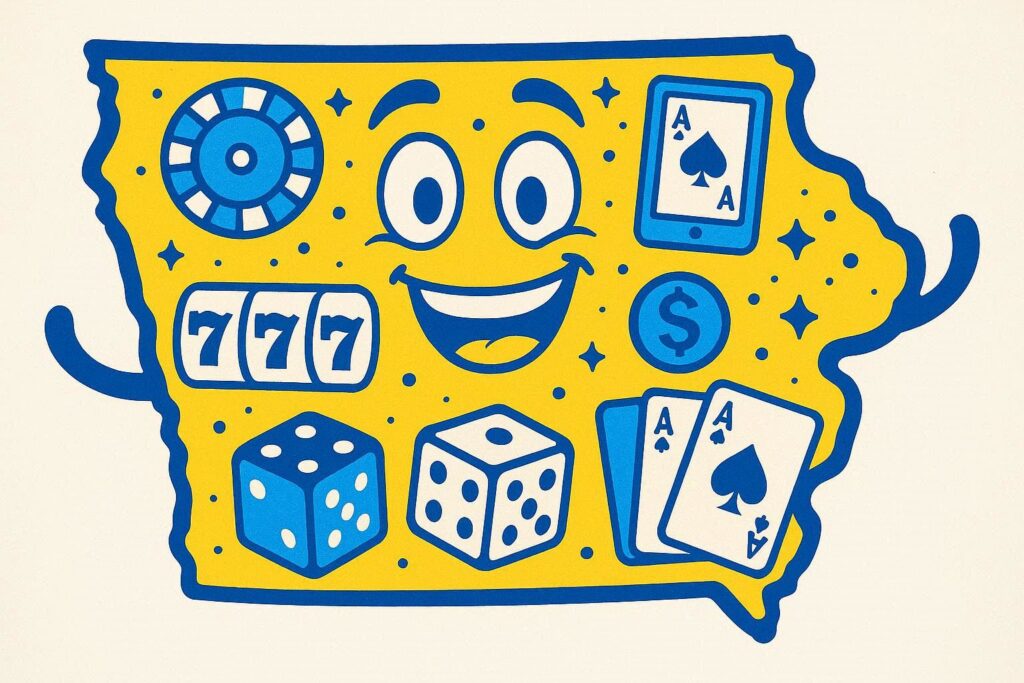A bill that would ban sweepstakes casinos in Ohio, one of the largest remaining United States markets for the industry, appears to have fully stalled out.
That’s according to House Speaker Matt Huffman, who spoke to the Statehouse News Bureau and other media members last week regarding the future of gambling expansion in Ohio.
Two bills that focus on gambling expansion — House Bill 298 and Senate Bill 197 — have been introduced in the 2025 legislative session. However, neither have generated any momentum. And Huffman suggested that they won’t throughout the rest of the 2025 session, either. The session runs through the end of the year.
“At some point, there is a saturation point,” said Huffman, who added he doesn’t expect to see any further gambling expansion this year. “There’s a group of people who don’t gamble. There’s a group of people who do. Maybe some people participate in different ways.”
Why does this matter for sweepstakes casinos?
Because, in addition to legalizing real-money iGaming, HB298 would also ban sweeps casinos.
This does not, however, prevent the Ohio Attorney General or the Ohio Casino Control Commission, from issuing cease-and-desist orders to sweeps gaming operators in 2025.
HB298 touches on ‘online sweepstakes game’ activity
HB298 singles out an “online sweepstakes game” as an illegal activity.
Specifically, the language bans any type of game available via computer or mobile device that “utilizes a dual-currency system of payment that allows a player to exchange the currency for a cash prize, cash award, or cash equivalent, or for a chance to win a cash prize, cash award, or cash equivalent.”
That language is targeting the social casino with sweepstakes model that these sweeps operators use, where Gold Coins can only be used on the gaming platform but Sweeps Coins, which players can get for free via things like login bonuses are as part of Gold Coin package purchases, can be redeemed for real cash.
Further, HB298 hones in on a platform that “simulates a gambling game,” such as bingo, horse race betting, sports betting, lottery gaming, or casino gaming.
Ohio governor opposes online gambling expansion
Since being introduced on May 21, HB298 has seen zero activity.
So it’s long been assumed the bill had no shot of passing before the Dec. 31 end of session, but Huffman’s comments cement that notion. That, plus Ohio Gov. Mike DeWine didn’t mince words when asked about online gambling expansion at the state fair this summer.
“I’m not for it,” he told reporters. “Basically to put a casino in everybody’s hands, 24-7, I think is probably not a great idea and I think it will cause more pain and suffering in regards to addiction as far as gaming addiction. So I’m just not for it.”
He later added, when asked about adding virtual lottery terminals in restaurants and bars in Ohio: “I think we probably have enough gambling in the state already.”
Ohio isn’t alone in a resistance to iGaming expansion. Retail casino cannibalization and responsible gambling concerns have all but ground online casino momentum to a halt in the United States, where there hasn’t been a full-fledged iGaming launch since Connecticut in late 2021. (Rhode Island launched in 2024, but that was with just one platform — Bally Bet Casino.)
Recent bills have all failed in New Hampshire, New York, Virginia, Wyoming, Maryland, Arkansas, Illinois, and Indiana.
As a result, it benefits sweepstakes casinos if a sweeps ban is attached to a bill legalizing real-money online casinos. In this current climate, they likely won’t progress far. None of the sweeps bans passed so far in 2025 have included such an iGaming stipulation.
Massachusetts has a similar bill
The only other active bill that would ban sweeps casinos in the current legislative session, in Massachusetts, would also legalize real-money online casinos.
The bill, House Bill 4431, includes simple language regarding sweeps casinos — nothing that touches on the “dual-currency” aspect seen in bills passed in California and New Jersey, for example. Here’s what HB4431 says:
- “It shall be unlawful for any person or entity to operate, conduct or promote online sweepstakes games within the commonwealth.”
- “It shall be unlawful for any person or entity to take any action to support or assist in the operation, conduct or promotion of online sweepstakes games within the commonwealth.”
Massachusetts’ 2025 legislative session ends on Nov. 19. With no hearings currently scheduled, it’s safe to say HB4431 has effectively stalled out.
Ohio’s importance to sweeps casino operators
By population, Ohio is one of the most important remaining markets for sweeps gaming.
California, the most populous state in the U.S., will see sweepstakes casinos become illegal on Jan. 1, 2026, now that Gov. Gavin Newsom has signed Assembly Bill 831.
New Jersey, the 11th-most populous state but an extremely active online gaming state, has been off-limits since mid-June.
New York, the fourth-most populous state, has passed a sweeps ban bill, although Gov. Kathy Hochul has yet to take any action on it. (She has until the end of the year.)
Most sweepstakes casinos don’t operate in Michigan, the 10th-most populous state, and a strong contingent also don’t operate in Pennsylvania, the fifth-most populous state.
So Ohio, the seventh-most populous state, carries a lot of value for sweeps operators.
Here’s how the top markets break down for sweeps, removing jurisdictions where sweeps gaming is banned, where a bill has passed, or where there is a heavy presence of cease-and-desist orders:
- Texas
- Florida
- Illinois
- Ohio
- Georgia
- North Carolina
- Virginia
- Tennessee
- Massachusetts
- Indiana
Then, on top of that, Ohio already has legal online sports betting, meaning the population is more exposed to online gaming than other markets in this top 10 — specifically Texas, where there is no legal online gaming, and Georgia, where only online lottery gaming is permitted.








